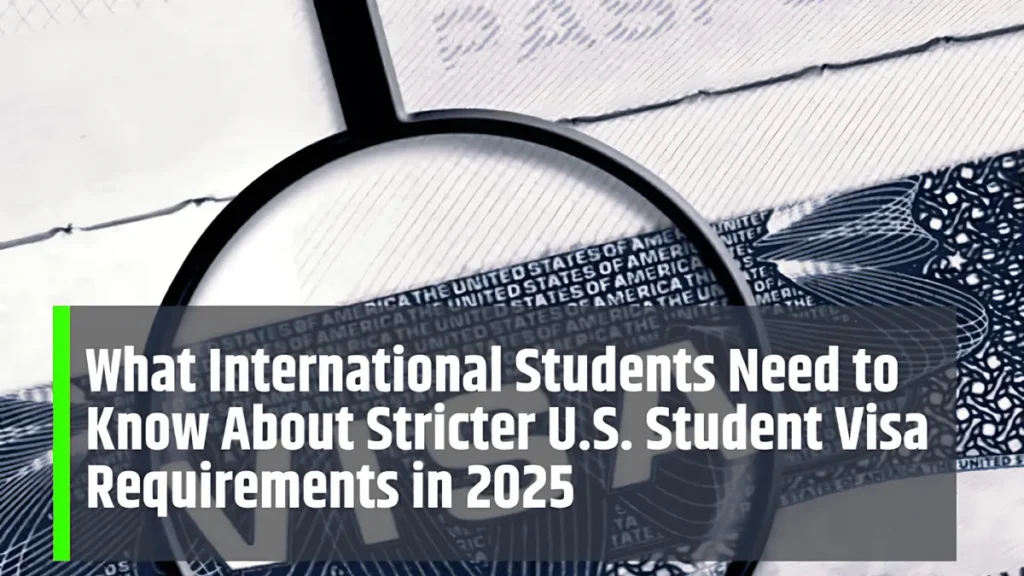Planning to study in the US Student Visa Rules this year? If you’re an international student, be prepared—2025 has brought major changes to U.S. student visa rules. From tougher interview requirements to social media checks, the process has become more demanding. Here’s everything you need to know about the new rules, who they affect, and how to prepare.
No More Third-Country Visa Stamping
Starting September 2025, students can no longer apply for an F-1 or J-1 visa in a third country. You must apply in your home country or country of legal residence. This change ends a popular option many students used to cut long wait times.
In-Person Interviews Are Now Mandatory
Every applicant—no matter their age or visa category—must attend a face-to-face interview at a U.S. consulate. Waivers that previously saved time have been eliminated, meaning students should expect longer processing and plan well in advance.
Visa Duration May Be Limited
The Department of Homeland Security is moving to cap student visas at up to four years. Unlike the old “duration of status” system, extensions would require filing with USCIS, adding extra steps and scrutiny for students in longer programs.
Social Media Screening Expanded
Consular officers are now reviewing applicants’ public social media profiles as part of the vetting process. Students may be asked to make their accounts accessible during the review stage. What you post online could influence your visa outcome.
Country-Specific Visa Rules
Visa validity and re-entry options will now depend more on nationality. For example, some countries may only get F-1 visas valid for a few months, while others retain multi-year options. Students must carefully check reciprocity agreements before traveling.
Higher Risk for Student Activists
A new wave of stricter enforcement is targeting students involved in political activism, especially international students at protests. Some have already faced visa cancellations, detention, or deportation threats, raising concerns over freedom of expression on campus.
Quick Facts at a Glance
| New Rule | Impact on Students |
|---|---|
| No third-country stamping | Must apply at home—longer wait times possible |
| Mandatory in-person interview | Expect longer processing; plan ahead |
| Visa cap (up to 4 years) | Extensions required through USCIS |
| Social media checks | Online activity may affect visa approval |
| Reciprocity changes | Visa length and re-entry vary by country |
| Activism risks | Protests may jeopardize visa status |
How Students Should Prepare
- Book visa slots early in your home country to avoid delays.
- Clean up your digital footprint—review what’s public on your social media.
- Check reciprocity rules specific to your nationality before applying.
- Seek legal advice if you’re involved in activism or unsure about compliance.
Conclusion: The U.S. student visa process in 2025 is more rigorous than ever. International students should expect stricter reviews, more paperwork, and closer monitoring. By preparing early and staying informed, you can avoid unnecessary hurdles and focus on what matters most—your education.
Disclaimer: This article is for informational purposes only. Always check U.S. Department of State and USCIS websites for the latest official visa guidelines.
Read More:
- US Campuses Fall 2025: How Politics and Federal Policies Are Changing Student Life
- Federal Court Blocks DEI Ban: What It Means for Schools and Colleges in 2025
- Social Security September 10, 2025 Payment: Exact Amount Beneficiaries Will Receive
- $1,400 IRS Payment 2025: Who Really Qualifies and How to Track Your Status
- $400 Stimulus September 2025: Who Really Qualifies and State Payment Schedules




